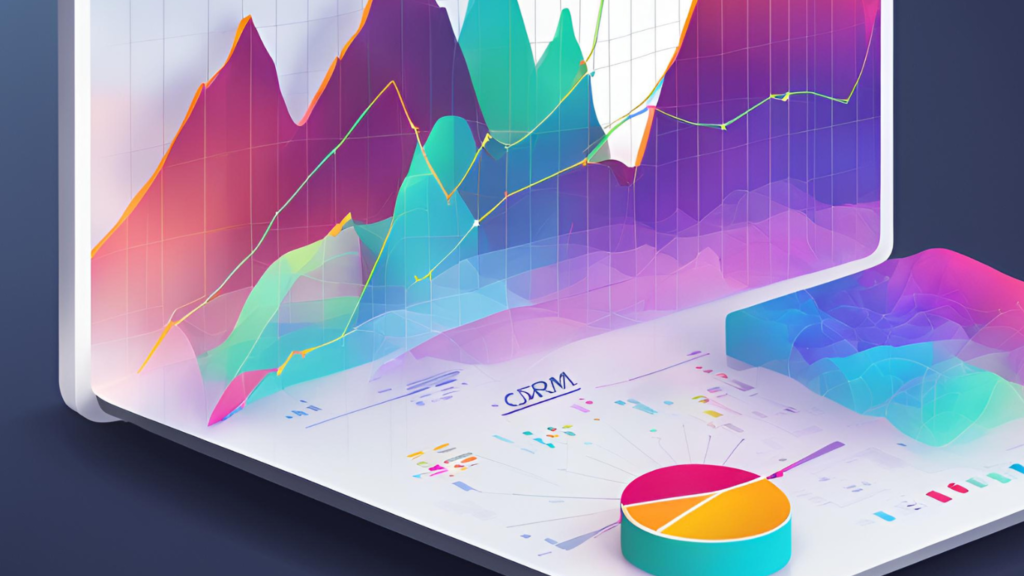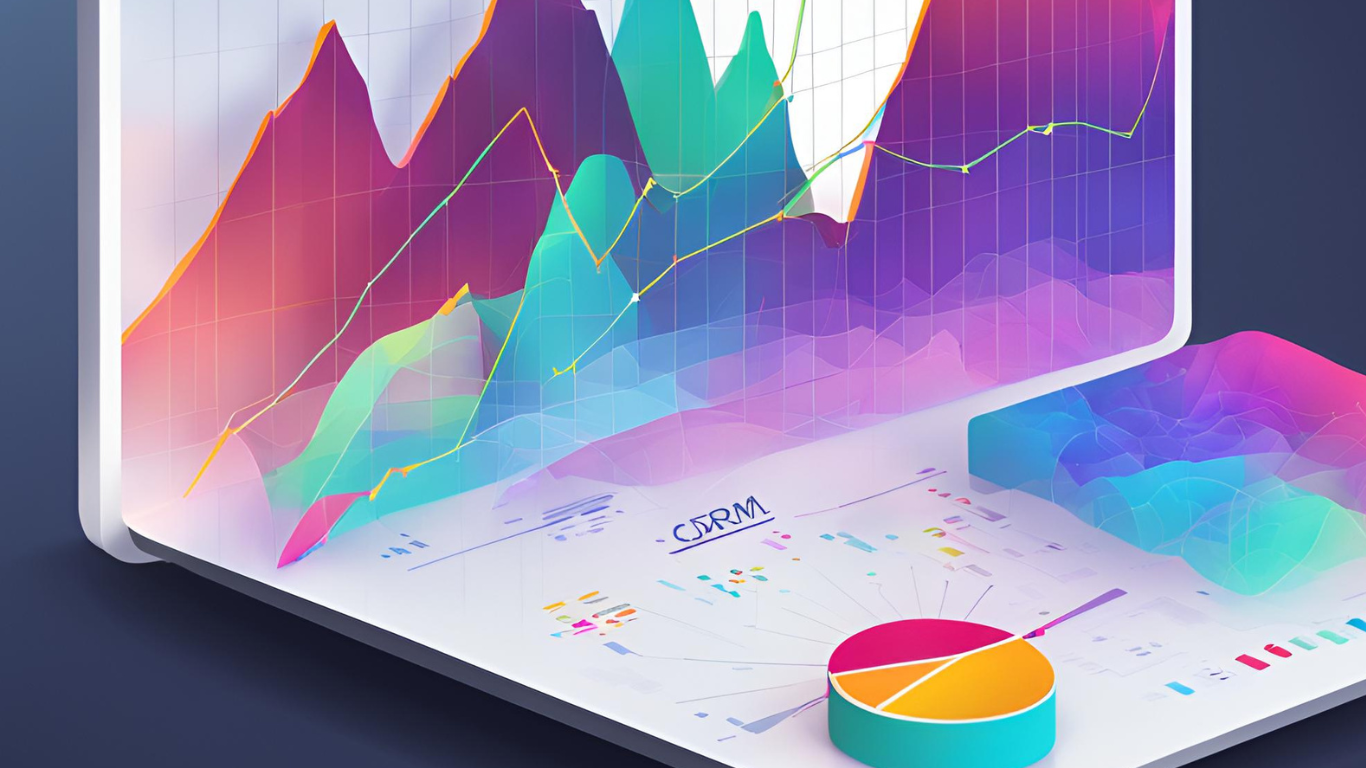Is CRM (Salesforce) a Good Stock to Buy Now?
When it comes to investing in technology stocks, few companies stand out as much as Salesforce (CRM). Known for its dominance in the cloud computing and customer relationship management (CRM) sectors, Salesforce has long been a favorite for investors looking to capitalize on the growing trend of digital transformation in businesses worldwide. However, the question on many investors’ minds today is: Is CRM a good stock to buy now?
In this blog, we’ll break down Salesforce’s current position in the market, examine its financial performance, consider industry trends, and weigh the risks and rewards of investing in CRM stock at this point in time.

1. Salesforce Overview: A Leader in Cloud-Based CRM Solutions
Salesforce is a cloud-based software company that primarily offers customer relationship management (CRM) services. Founded in 1999 by Marc Benioff, Salesforce quickly became one of the leading providers of cloud software solutions, helping businesses manage customer data, sales pipelines, marketing, analytics, and customer service operations.
Over the years, Salesforce has expanded its product offerings through strategic acquisitions, including companies like MuleSoft, Tableau, and Slack. These acquisitions have allowed the company to diversify its revenue streams, moving beyond its CRM roots to become a comprehensive cloud platform that provides everything from marketing automation to enterprise-level analytics.
2. Salesforce’s Financial Health and Growth Potential
One of the primary factors to consider when evaluating whether CRM is a good stock to buy is the company’s financial performance. Let’s take a look at some of the key financial metrics:
Revenue Growth
Salesforce has consistently shown strong revenue growth. For its fiscal year 2024, the company reported revenues of around $35 billion, marking a year-over-year growth of 11%. Although this growth rate may seem moderate compared to its past explosive growth, it still reflects Salesforce’s ability to maintain a dominant position in a highly competitive market.
Profitability
Salesforce has been able to maintain profitability, but like many growth-oriented tech companies, it has often traded profitability for expansion. For example, in its most recent quarter (Q2 FY 2024), Salesforce reported earnings of $1.09 per share, which exceeded analyst expectations. Its non-GAAP operating margin was 20%, and its free cash flow remains strong, demonstrating that the company is able to generate ample cash despite its significant investments in growth.
Margins
Salesforce enjoys relatively healthy margins compared to other SaaS (Software as a Service) companies. Its gross margins typically hover around 70-75%, a healthy figure for a SaaS company of its size, reflecting the scalability of its cloud-based business model.
Acquisitions and Strategic Investments
The company’s strategy of acquiring complementary businesses has significantly enhanced its capabilities. For example, the acquisition of Slack Technologies in 2021 for $27.7 billion was a game-changer, further integrating Salesforce’s product suite with collaborative tools. This strategic move helped Salesforce transition more into the workplace productivity and enterprise communication space, which positions it well in the evolving hybrid work environment.
3. Industry Trends Favoring Salesforce
One of the most compelling reasons why Salesforce might still be a good stock to buy is the broader market trend toward digital transformation. Here are a few reasons why the CRM and cloud software markets remain poised for long-term growth:
The Growth of Cloud Computing
The global shift toward cloud-based technologies continues to accelerate. With businesses looking for ways to operate more efficiently, reduce overhead costs, and streamline operations, cloud computing has become the foundation for digital transformation. Salesforce’s cloud-based CRM platform is integral to this transformation, as businesses of all sizes rely on its tools to manage and analyze customer relationships, sales data, and marketing campaigns.
Adoption of AI and Automation
Another trend that Salesforce is capitalizing on is the integration of artificial intelligence (AI) and automation in business processes. Salesforce’s Einstein AI, which powers its CRM platform, allows businesses to gain insights from data and automate tasks like customer service interactions, marketing personalization, and sales forecasting. As AI technology becomes more embedded in enterprise software, Salesforce is well-positioned to lead the charge in helping organizations stay competitive.
Remote Work and Collaboration
The remote work trend, which was accelerated by the COVID-19 pandemic, has spurred a rise in demand for collaboration tools and cloud-based productivity solutions. The integration of Slack into Salesforce’s ecosystem plays a key role in its strategy to offer businesses an all-in-one solution for both customer management and team communication.
Enterprise Customers & Ecosystem
Salesforce’s deep integration into large enterprises’ workflows means the company has a vast and loyal customer base. As organizations continue to expand their digital infrastructure, many companies will likely continue to rely on Salesforce’s ecosystem of solutions, further driving up recurring revenue.
4. Valuation of CRM Stock
Before deciding whether CRM is a good stock to buy now, it’s crucial to examine its current valuation. As of late 2024, Salesforce’s market capitalization is approximately $230 billion, making it one of the most valuable tech companies globally.
Price-to-Earnings Ratio (P/E)
As of the latest data, Salesforce has a forward P/E ratio of around 35, which is relatively high compared to the broader market but not uncommon for a high-growth SaaS company. This suggests that investors are willing to pay a premium for Salesforce stock due to its potential for continued growth.
Price-to-Sales Ratio (P/S)
Salesforce’s P/S ratio is around 6x, which is somewhat typical for SaaS companies. While this isn’t excessively high, it reflects Salesforce’s position as a market leader, with robust growth prospects and significant market share. For comparison, other major cloud companies like Microsoft and Adobe trade at similar or even higher multiples.
Growth vs. Value Investing
At this juncture, Salesforce is still considered a growth stock, with an emphasis on future expansion rather than immediate profitability. While its growth prospects remain strong, investors should be aware that Salesforce’s valuation may seem stretched compared to slower-growing, more traditional companies. If growth slows or if the broader tech market faces headwinds, Salesforce’s stock price could face pressure.
5. Risks to Consider
While Salesforce’s fundamentals look strong, there are a few risks that investors should consider before buying CRM stock.
Competition
Salesforce faces increasing competition in the CRM and cloud space. Rivals like Microsoft Dynamics, HubSpot, and Oracle offer similar products and are constantly improving their offerings. Moreover, new players could emerge with innovative solutions that undercut Salesforce’s pricing or provide better functionality.
Economic and Market Conditions
Tech stocks, particularly growth stocks, tend to be more sensitive to macroeconomic conditions. If the global economy slows down or if there are significant interest rate hikes, high-growth tech companies like Salesforce might experience stock price volatility as investors shift their focus to more defensive, value-oriented sectors.
Integration Challenges with Acquisitions
Salesforce’s aggressive acquisition strategy, while successful in many cases, also carries risks. Integrating large acquisitions, like Slack, into its ecosystem is not always smooth sailing. There could be operational challenges, unexpected costs, or even cultural clashes that slow down Salesforce’s ability to realize the full value of its acquisitions.
6. Is CRM a Good Stock to Buy Now?
Whether Salesforce is a good stock to buy now depends on your investment strategy and risk tolerance.
- For long-term growth investors, Salesforce remains a solid choice. The company’s leadership in the CRM space, strong financials, and ability to tap into high-growth areas like AI, automation, and cloud-based collaboration tools position it well for continued success. If you’re comfortable with the stock’s premium valuation and believe in the long-term potential of cloud computing and digital transformation, Salesforce could be an excellent addition to your portfolio.
- For value investors, Salesforce may not be as attractive right now. Its valuation remains relatively high compared to the broader market, and there are risks associated with competition, integration challenges, and macroeconomic conditions. If you prefer stocks that offer more immediate value or are trading at lower multiples, Salesforce may not meet your criteria.
- For risk-averse investors, the volatility inherent in growth stocks like Salesforce might be a concern. While Salesforce has a strong market position, the stock could experience short-term price fluctuations due to broader market trends or competitive pressures.
Conclusion
Salesforce remains a dominant force in the CRM and cloud computing sectors, with strong growth potential driven by digital transformation, AI adoption, and its extensive enterprise customer base. However, the stock’s premium valuation and competitive market dynamics make it a more suitable choice for long-term, growth-oriented investors who are willing to ride out the short-term volatility. If you believe in the continued growth of cloud computing and Salesforce’s ability to innovate and expand, CRM could still be a good stock to buy now—just be sure to weigh the risks and consider your investment timeline.
